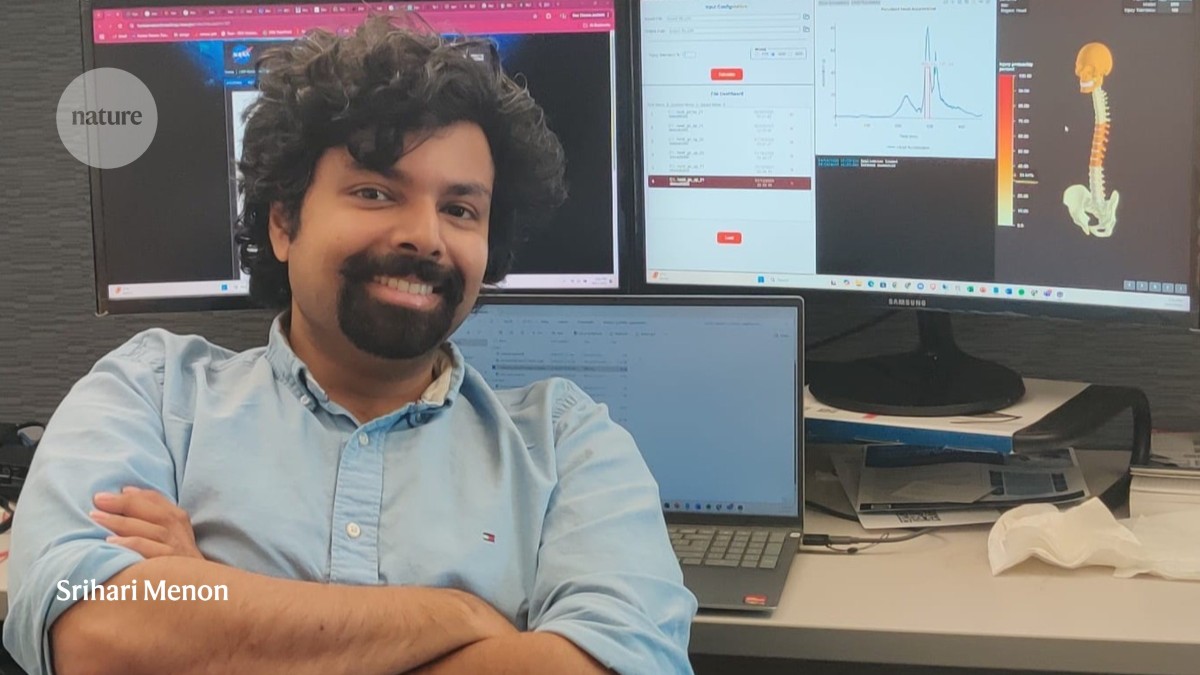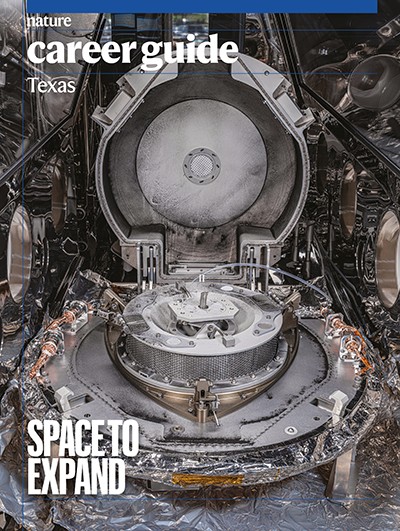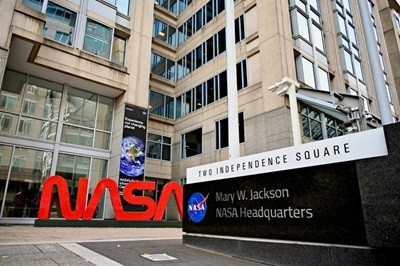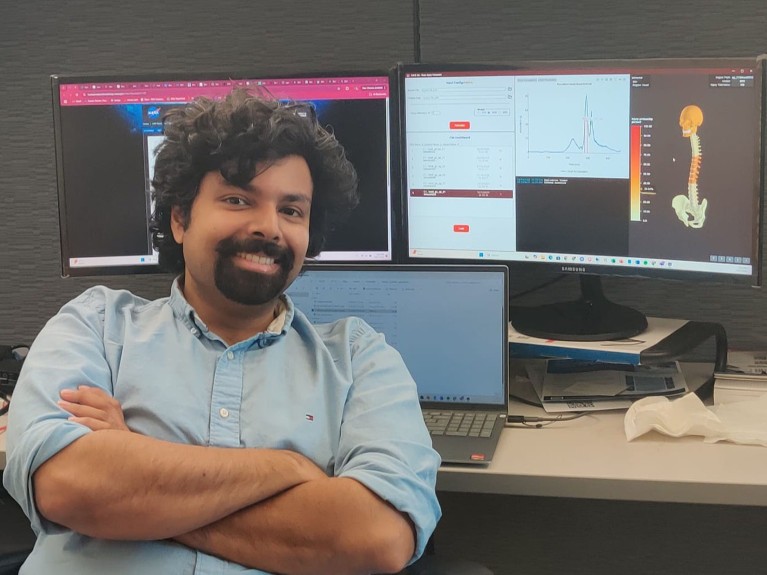
Postdoctoral researcher Srihari Menon says having a diverse skill set is an advantage in the space industry.Credit: Srihari Menon
They say everything is bigger in Texas — and the aerospace industry is no different. A report1 published this year by PricewaterhouseCoopers (PwC) ranked Texas as the top US state for aerospace manufacturing attractiveness. PwC, a multinational services firm based in London, scores each state on metrics such as industry growth, the local economy and tax policies. The sector itself is expanding; the US Bureau of Labor Statistics projected that countrywide employment for aerospace engineers will grow faster than average between 2023 and 2033, with more than 4,000 job openings expected each year.
Nature Career Guide: Texas
Although proposed NASA budget cuts from the administration of US President Donald Trump, which are due to be ratified later this year, will probably reverberate across the industry, they are likely to be ameliorated by the country’s status as the global leader in military spending. One-quarter of that spending is devoted to the aerospace and defence sector, according to PwC. Texas’s economy is especially bolstered by the commercial space industry — 18 of the largest aerospace companies call the region home — and by increased investment from the Texas Space Commission, which was launched in March last year.
Here, four space specialists talk about the evolution of the state’s aerospace industry and the advice for those looking to enter the field.
DAVID SILVA: The importance of being a life-long learner
Professor of physics and astronomy and director of the Center for Space Technology and Operations Research at the University of Texas at San Antonio.
For undergraduate students, I think it’s beneficial to start their careers here in Texas because the cost of a degree is more affordable compared with in other states. The state subsidizes higher education through state support and reinvestment of fossil-fuel and mineral-extraction fees: the annual in-state college tuition in Texas is roughly US$1,500 less than the national average.
Unlike academia, the private industry is not necessarily looking for people with post-doctoral experience. Companies want people as early as they can get them, both because they like the energy of recently trained engineers, but also because there’s a certain amount of retraining or training that an individual will need to complete when a company has a specific mission. In the next few years, Texas will be proving the economic business case of this industry, but I think that there’s going to be enough demand driven by national-security objectives for students to find opportunities irrespective of the NASA funding cuts. It might be that the total federal investment in space technology will increase over time, especially in the military and intelligence fields.
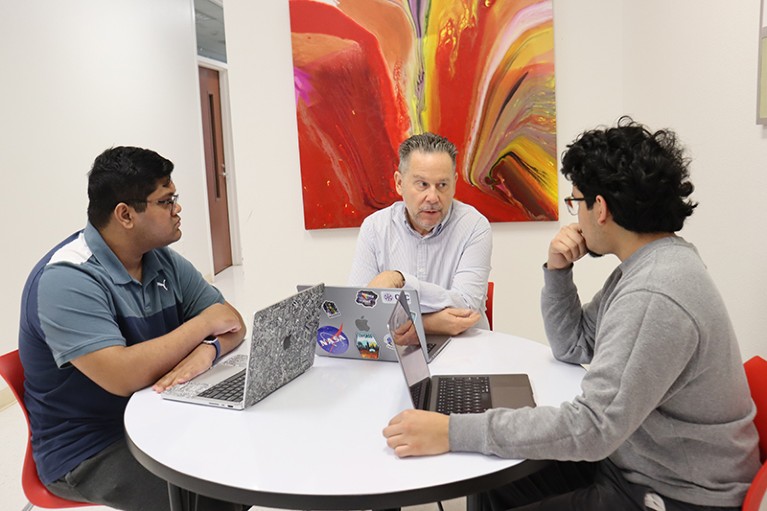
David Silva (centre) says that there are plenty of opportunities for recently trained engineers in the Texas space industry.Credit: Ryan Schoensee
In my experience, space enterprise start-up companies in the state are looking for graduates who can cover a large variety of engineering fields, including electronics, power, structures and artificial intelligence, but they’re also looking for scientists who are willing to work on not only basic research but also on applied science and technical problems. A nice example of this type of problem is building habitats on the Moon. You need to understand the geophysical, chemical and structural properties of the lunar surface and how this evolved from impacts by solids and solar wind to answer questions such as, ‘Can a given material be used to build habitats?’ or ‘How do you form bricks that are stable in an environment without an atmosphere or water?’
A common thread is that these companies are really looking for people who are willing to be life-long learners. This means that graduates with a variety of science and engineering backgrounds can make great candidates for working in the space industry. It also means that students with a more conventional space-industry experience might not want to focus on one field but instead be generalists. Some advice that I would give to students is that during your scientific training, the more you can work on actual projects and get out of the classroom, the more attractive you’re going to be in the marketplace. It’s my experience that potential employers care a lot more about actual experience than they do about grades. At the University of Texas at San Antonio, this is something we’ve leaned into by making sure that our engineering students are doing senior projects on challenges set by local companies, so that in the final year of their degrees they’re working on an applied project.
LLOYD WENDT: Landing the first gig
Senior recruiter at Venus Aerospace in Houston, Texas.
We see new recruits with backgrounds that run the gamut, including expertise in propulsion, aeronautics and astronautics, software engineering and mechanical engineering. At Venus, where we work to develop reusable hypersonic technologies — such as rocket engines — junior-level roles might require a bachelor’s degree but mid- to top-level roles are typically filled by candidates with a master’s or PhD in that niche area.
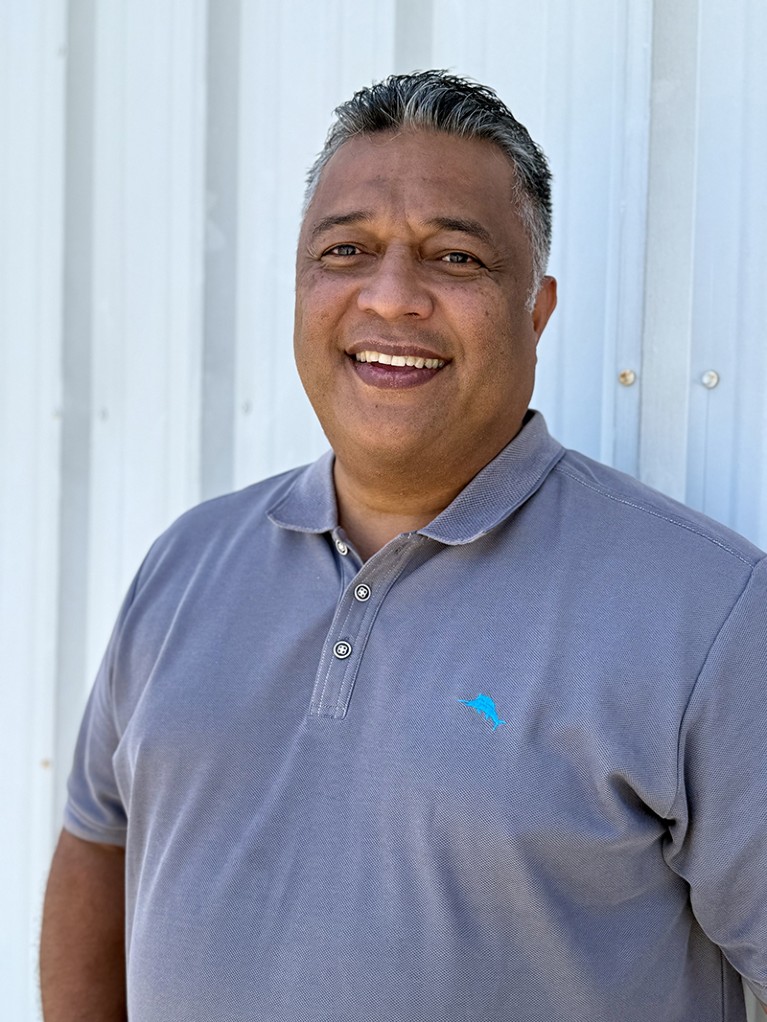
As a senior recruiter, Lloyd Wendt suggests that joining clubs and connecting with alumni can help to secure work experience.Credit: Rachael Yates
In these specialized areas, such as vehicle engineering, it can be beneficial to bring a multifaceted skill set, for example an understanding of not just the analysis and design of a vehicle but also the mechanical engineering knowledge of how to build it. However, focusing your expertise too narrowly on a specific fuel or material might not be useful because these are likely to change over time, especially in the case of fuels — different types of which might be phased out as more are developed.
Irrespective of what role you’re interested in, it’s always beneficial to have real-world experience in that area, this can include internship experience or a thesis project at university. However, we recognize that internship opportunities can receive thousands of applicants for only a handful of roles. Therefore, joining clubs, reaching out to alumni or asking to shadow a professional at a space company can all be good starting places. The toughest gig is your first, but once you get in and start making connections, recruiters will be eating you up.
SRIHARI MENON: Developing diverse skills
Postdoctoral researcher at the Texas A&M Transportation Institute in College Station, Texas.
When it comes to space, Texas is unique: we have NASA and private industry in our backyard.
Your job as an early-career researcher is simply to develop your skills across the spectrum. Eventually, if your skill set is sufficiently diverse, you will find utility in any industry. These skills need not be trendy, because aerospace as an industry is much too mature to latch onto trends that don’t last longer than five years.
After completing a master’s degree in computational fluid dynamics for propulsion and atmospheric re-entry, I pivoted to the study of computational injury biomechanics, which uses engineering models to evaluate injury risks. Combining these areas, I was qualified to start my doctoral studies in spacecraft occupant safety. In the future, this diverse skill set could help me to market myself in fields outside conventional aerospace, such as at automotive companies, civil-aviation firms and injury-research laboratories.
‘We dissent’: NASA staff declare opposition to Trump cuts
For industry networking, if you’re early on in your career, you might want to go to conferences such as ASCEND. This is an interesting event for people who are trying to break into the space industry, because it brings policymakers, aerospace companies, scientists and early-career researchers into one place. In addition to ASCEND, I would also recommend networking at NASA conferences, such as the Human Research Program Investigators’ Workshop, and at the Pumps and Pipes annual event that will take place in December in Houston, Texas, for professionals working at the intersection of medicine, space and engineering.


